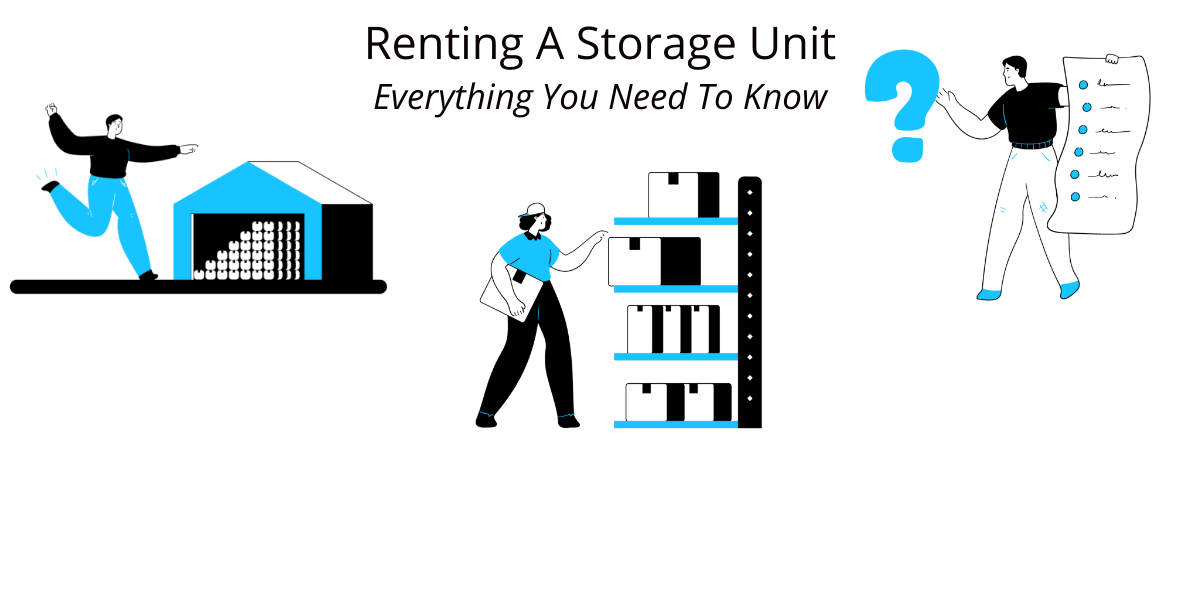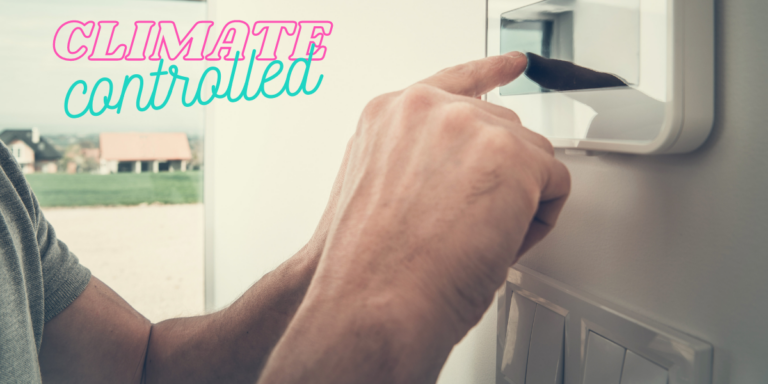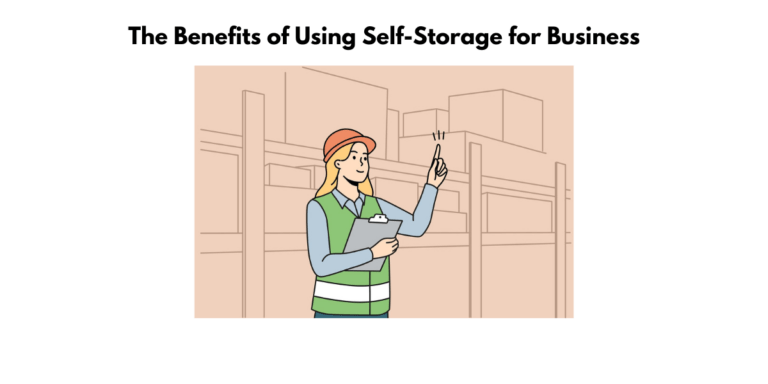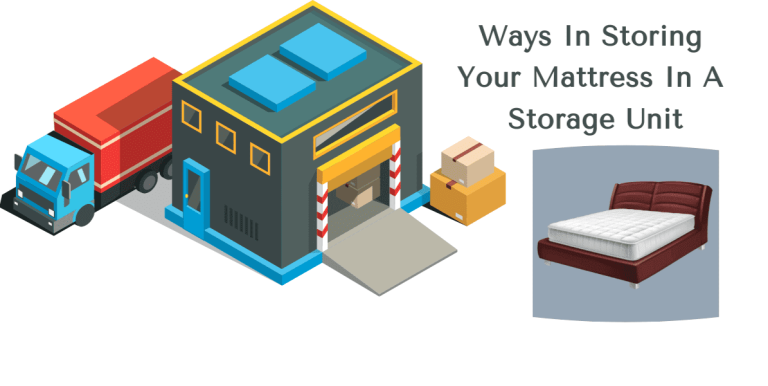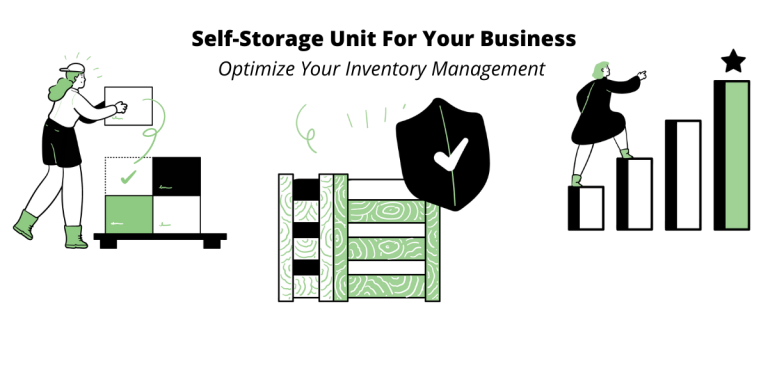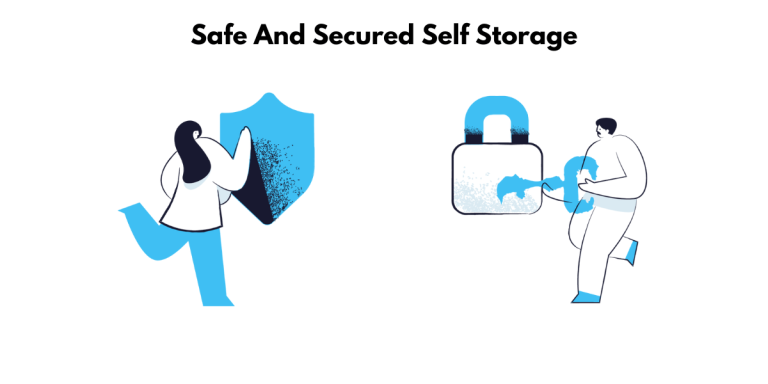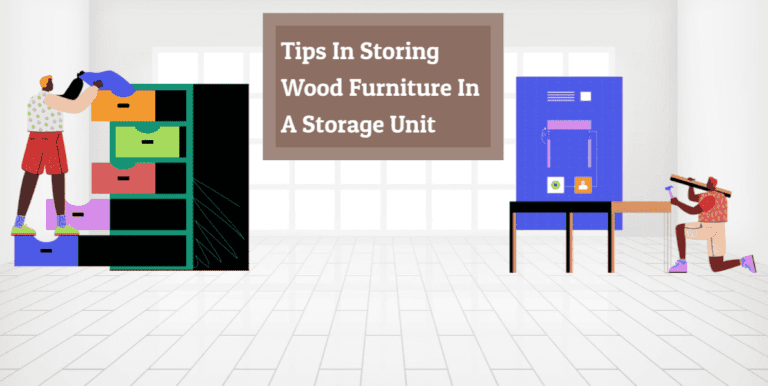16 FAQs You Need to Know Before Renting a Storage Unit
16 FAQs You Need to Know Before Renting a Storage Unit
Are you considering renting a storage unit?
It can be daunting for those who don’t know the ins and outs of self-storage.
Before signing a contract with a storage unit company, there are a few things to consider, such as mandatory insurance coverage, the size and type of unit you’ll need, and the cost of renting a storage unit.
Everyone can benefit from a storage unit, from homeowners to business owners.
To help you make an informed decision when renting a storage unit, here are 16 frequently asked questions you need to know before renting a storage unit.
1. What is a storage unit?
A storage locker is a secure space in a storage facility that you can rent for a specified time.
It is a convenient, space-saving solution for those who need to temporarily or permanently store their belongings.
Security features, such as locks and surveillance cameras, are typically in place to protect your items.
Renting a storage unit requires signing a contract and paying a fee for the rental duration.
It is important to note that living in or conducting business in a storage unit is illegal.
2. Who needs a storage unit?
Cheap storage units are a great option for anyone looking to free up space, whether a homeowner, a business owner, or a college student.
People may rent local storage units for various reasons, such as decluttering their home, freeing up space in a dorm room, or while their new home is being completed.
Seasonal storage is also popular, with holiday decorations, costumes, gear, clothing, and lawn equipment going into storage during the off-season.
Ultimately, anyone looking to declutter and create more space can benefit from renting a storage unit.

3. How secure are storage units?
Storage units can provide an extra layer of security for your valuable items, but how secure are they?
To ensure the safety of your possessions, it is important to look for certain features when selecting a storage facility.
Gated access, surveillance cameras, good lighting, and high walls are all basic security features to protect storage spaces.
More advanced security features may include individually alarmed units and an on-site security guard.
It is also important to ask the facility manager about the type of video surveillance used, the type of lock provided, and whether or not there is a gate code to access the storage facility.
It’s also a good idea to check the crime rate in the area to get a better idea of the level of security at the facility.
When storing your valuables, make sure you ask the right questions and do your research to ensure your belongings are kept safe and secure.
4. How long can I rent a storage unit?
You can typically rent a storage unit for as long as you like; however, most storage companies require a minimum rental period of one month.
Some companies may even have a three-month minimum.
You may be able to find shorter rental periods if you look around, but be aware that you may end up paying more per day for a shorter rental.
Is renting a storage unit possible every week?
Yes, it is possible to rent a storage unit every week.
Many storage facilities offer contracts on a month-to-month basis, but some also offer weekly storage units for those who need short-term storage.
This way, customers have the option to store temporarily or long-term.
Weekly storage units, available to rent from week to week, are also very convenient for those looking for short-term storage and are an ideal solution for storing sports equipment, holiday ornaments, or any other items that need to be stored for a short period.
Furthermore, the cost of a storage unit is based on how much and how long you store, so weekly storage units are often more cost-effective than longer-term rentals.
Is it mandatory to sign a long-term lease?
Signing a long-term lease when renting a storage unit is not always necessary.
Rental agreements (or contracts) typically come in month-to-month leases, allowing you the flexibility to stay for as long as you need.
Depending on the storage facility, you may also be able to pre-pay for a certain number of months in advance or sign a longer lease to get a discount.
However, some storage facilities may have minimum rental duration requirements (usually three months) and will factor this into the total cost of the rental upfront.
It’s important to read and understand your rental agreement before signing so that you know all the terms and conditions of the lease and can make an informed decision.
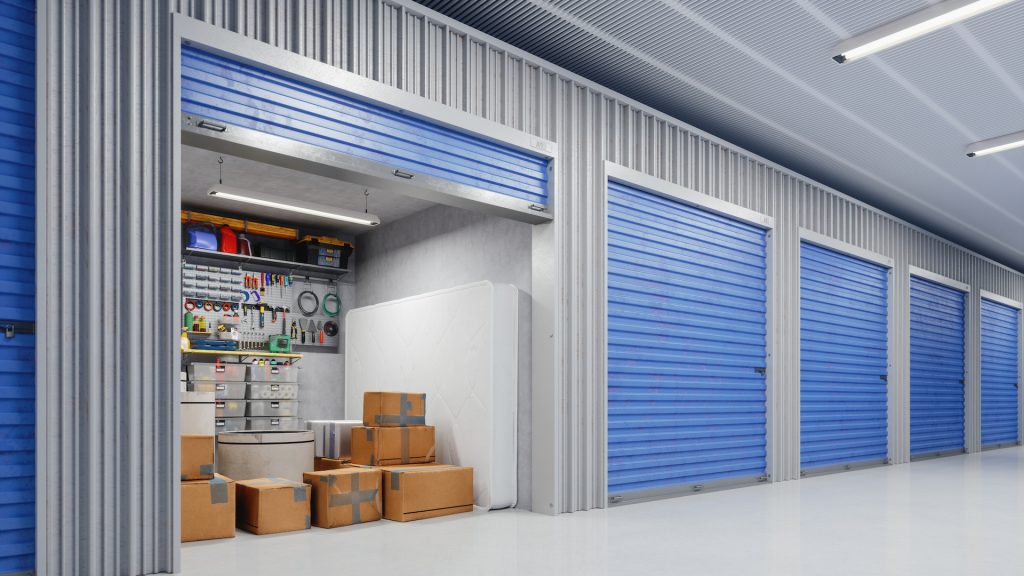
5. What types of storage are there?
Self-storage is a great option for those needing to store items they don’t have space for in their home or office.
There are several different types of self-storage designed to accommodate different needs.
The most common type is the traditional self-storage unit with four walls, a roof, and a door.
Drive-up storage unit
A drive-up storage unit is an outdoor storage unit that can be accessed with a car, truck, or cargo van.
It is similar to a garage space, offering convenience and easy accessibility.
These storage units are great for customers with frequent needs, allowing them to load and unload items quickly.
Drive-up storage units are available in indoor and outdoor varieties and can be found at many self-storage and mini-storage facilities.
Items that can be stored in drive-up storage units include the following:
- furniture
- appliances
- electronics
- documents
- clothing
Climate-controlled storage unit
A climate-controlled storage unit is an indoor unit that monitors the temperature and humidity to protect sensitive items from extreme temperatures, humidity, and other conditions.
This storage option is best for renters who need long-term storage, have valuable belongings, or live somewhere with extreme temperatures.
The benefits of a climate-controlled storage unit include the protection of valuable belongings from extreme temperatures, humidity, and other outside conditions.
This prevents mildew, mold, and other unwanted conditions.
Climate-controlled units can also help to protect the following:
- clothing
- paintings
- furniture
- electronics
- instruments
- other items from damage due to temperature and humidity changes
The drawbacks of climate-controlled storage units include the cost – they are usually more expensive than standard storage units.
Additionally, not all storage places offer this unit type, so it’s important to ask in advance.
Finally, climate-controlled units may not always be necessary depending on the items being stored and the environment they are stored in.
Outdoor storage unit
An outdoor storage unit is outside, usually covered and locked, to store items that the elements or pests wouldn’t damage.
They typically have drive-up access, making unloading your items convenient.
Outdoor storage units are ideal for storing the following:
- large items
- cars
- motorcycles
- RVs
- boats
- trailers
- commercial vans
You can also store ordinary household items and appliances as long as they fit in the unit.
However, hazardous or flammable materials cannot be stored in a storage unit.
Indoor storage unit
An indoor storage unit is located within a building, protecting it from the elements and pests.
These units are typically climate-controlled and offer better security than outdoor units.
There are two main types of indoor storage units: climate-controlled units, which monitor temperature and humidity levels, and non-climate-controlled units.
Both types of indoor storage units offer better protection than outdoor units.

6. How much does it cost to rent a storage unit?
Renting a storage unit can be a great way to keep your belongings safe and secure but also a big expense.
The cost of storage space for rent will vary greatly depending on the size, features, climate control, and the facility’s location.
On average, a standard storage unit will cost between $60 and $180 per month, while a climate-controlled storage unit will range from $75 to $225 per month.
Climate-controlled storage units are typically twenty-five to fifty percent more expensive than non-climate-controlled units.
Most storage contracts require a one-month minimum, although you may find lower prices by comparing quotes from several nearby locations.
7. How long can you go without paying for storage?
If you fail to pay on time, the facility can deny entry.
The point of default should be specified in your lease.
Depending on the facility, you may have anywhere from 5 to 30 days after the due date to make your payment before you are considered to have defaulted.
If you don’t pay your bill, per self-storage state lien laws, a storage company has a right to hold and auction off your belongings to make up for lost rent money.
It’s the last resort, so pay your monthly storage fee on time to avoid this situation.
8. What are the typical sizes of storage units?
Storage units typically come in various sizes, ranging from small 5’x5′ units to large 10’x20′ units.
- Small storage units (0-50 sq ft.) are ideal for storing miscellaneous items around the house, dorm, or extracurricular gear (fishing gear, skis, bikes, etc.).
- Medium storage units (51-150 sq ft.) are best for storing items from a smaller home or apartment while you’re remodeling or downsizing.
- Lastly, large storage units (151 + sq ft.) are perfect for storing an entire home’s items if packed properly.
Ultimately, the size of the storage unit and the price will depend on the number of bins (or boxes) you request.
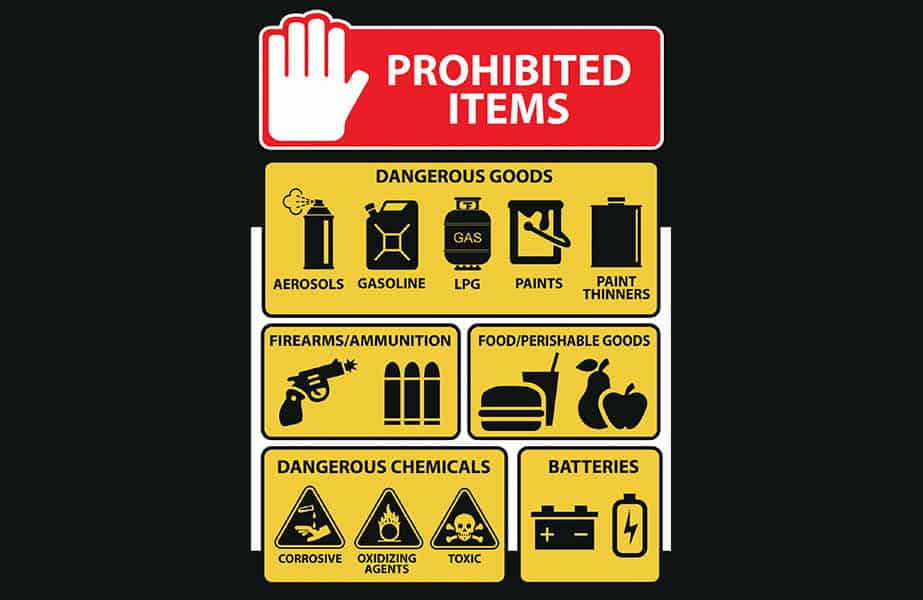
9. Are there forbidden items to store?
Yes, there are certain items that storage facilities will not allow to be stored in their units.
These include the following:
- hazardous or illegal materials
- flammable substances like gas and oil
- firearms
- food
- money
- tires
- plants
- animals
- humans
- anything combustible or toxic
Additionally, some facilities may also forbid items like original artwork, family heirlooms, family photos, and items that contain personal information.
It is important to ask the facility manager or read through your rental agreement to determine the specific rules.
10. What documentation must I provide to rent a storage space?
To rent a storage space, you must provide valid, government-issued photo identification, such as a driver’s license, a state ID, a passport, or a military ID.
You will also have to sign a binding storage unit agreement or contract, which outlines the terms of your lease, including the length of the lease, the amount of rent, the payment due date, the amount of the security deposit, the payment methods accepted, and any fees associated with the rental.
Additionally, it will include tenant rights, landlord rights, cancellation terms, what items you can store, and the move-out process.
Make sure you read and understand the agreement fully before signing it.
11. How often can I access my storage unit?
Typically, storage units can be accessed during standard business hours.
However, some companies offer 24-hour access.
It is advisable to check with the local self-storage facility for more details, including office and gate hours.
12. Is storage unit insurance necessary?
While not all storage facilities require it, it’s usually a good idea to look into insurance coverage for your unit.
Many storage companies offer in-house coverage, and you can also check to see if your existing home or renters insurance will cover items stored in a storage unit.
The cost of storage insurance varies depending on the coverage you need, but it could provide peace of mind if something unexpected happens.
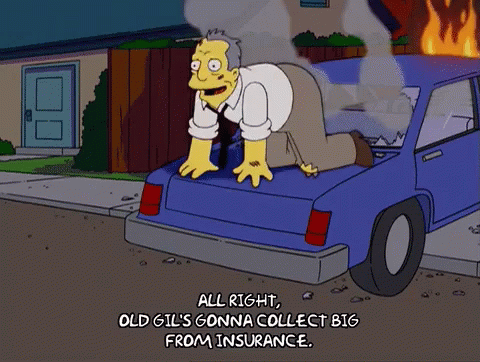
13. How do I file a claim if I suffer a covered loss?
If you rent a unit, your personal property will not be covered by your homeowners’ or renters’ policy in case something happens.
When renting a storage unit, you have insurance coverage that satisfies your lease obligations and monthly premiums.
The operator may receive remuneration for its administrative services.
If you suffer a covered loss when renting a storage unit, the process for filing a claim may vary depending on your insurance type.
- Contact your insurance provider. Contact your agent to start the claims process if you have coverage in your homeowners’ or renters’ policy. Contact the insurer if you purchased a personal articles policy for your storage unit.
- Gather proof of ownership. Provide your insurance provider with a list of the items you stored in the unit and proof of ownership (receipts, photos, etc.).
- File your claim. Provide your insurance provider with details of the loss and any documentation that may support your claim.
- Keep a record. Keep a record of all communication with your insurer, including dates and names of people you speak to.
- Follow up on your claim. You will be notified once the claim is approved or denied. If it is approved, you will receive payment for the covered losses.
14. Who else can access my storage unit besides me?
Generally, storage units can only be accessed during standard business hours, but some companies offer 24-hour storage access.
However, access hours may vary from location to location.
It’s best to check with the storage facility you’re renting from before signing a lease to see their access hours.
You should also inquire about the security measures the facility has in place to ensure the safety of your possessions.
This could include surveillance cameras, alarm systems, and on-site staff members.
It’s important to remember that while you are the only one with the key to your unit, other people may have access to the facility itself.
15. Can a storage unit be rented over the phone or via the internet?
Yes, renting a storage unit over the phone or via the internet is possible.
Many storage facilities offer an online option for booking storage space, which is convenient and saves time.
You can create an account, pay your monthly bill and fees, such as the security deposit, and even reserve storage units in advance.
16. What if I lost my key?
If you lose your key, it’s important to know that the lock is designed so that cutting through it won’t damage any parts.
If you’re trying to cut your lock, risks are involved because the slide bolt and door may be damaged.
You could call the office and ask them if they have found it yet, or go down and see if someone can give up theirs.
If neither of those options works for you, use bolt cutters to break into the lockbox and take out your key.
If you’ve lost your key to a storage unit, don’t panic. Here’s what you should do:
- Contact the storage facility’s office as soon as possible.
- Explain the situation to the manager and ask what your options are. They may ask you to provide a form of identification.
- If you rented the storage unit in person, the manager would likely be able to replace the lock and provide you with a new key. If you rented the storage unit online, you might need to purchase a new lock and key.
- If you’re insured, make a claim as soon as you find out what’s missing.
- Make sure always to store your valuables or belongings in a secure facility. Check with your homeowners’ or renters’ insurance policy to see if your stored belongings are covered in the event of a theft.
- Portable Storage Containers: Is it the right option for you? - January 24, 2023
- How to Pick the Right Clutter Storage Movers and Self-Storage Company Near You: A Helpful Guide - December 22, 2022
- Warehouse Storage: The benefits of using a self-storage unit as your business inventory solution - November 25, 2022

